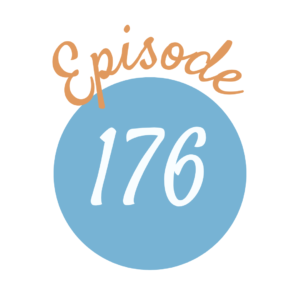
Charlotte Mason acknowledged that teaching reading can feel like moving at a snail’s pace, but that children love making progress. In this demonstration of a reading lesson, Maelle understands how to read, but is still building her fund of recognized words. Emily works with her in a short reading lesson in one example of how we can help our young reader get another step further down the road to independence.
Listen Now:

Home Education (Volume 1), pp. 199-229

Reading-Literature First Reader, Free & Treadwell

Soapstone Slate Pencils (in case you don’t like the sound/feel of chalk either)

I was surprised that you told her what each word was instead of making her sound them out. I wonder if I have been making our reading lessons too difficult.
Hi Ashley,
Thanks for listening. Have you taken a look at how Miss Mason describes reading lessons in her first volume, Home Education (the passage starts on page 199)? While she does advocate some sound lessons (she calls them “Spelling” lessons), when a child begins reading lessons, it’s not the typical “sound it out” kind of thing. This immersion lesson was for a child who knows many words already, but still has a lot that are unfamiliar, so I didn’t go through every single word with her before beginning to read the passage. The method of teaching the words could be very similar to the process I went through with Maelle, however.
Emily
Ashley,
We all fall into habits in teaching and a review of Miss Mason’s own
advice is helpful from time to time to keep us on track. I often find
little things I have gotten off on this way. I don’t see much
“sounding out” as part of her method of teaching, other than when they
are doing word building. For the most part, it is see a word,
recognize its individual pattern and letter combination every time you
see it, and know what that word is. We all read by sight. Especially
once a child is reading somewhat independently, stopping to “sound
out” can belabor the lesson and distract from the comprehension…they
have to go back and start over to remember what is being said…and so
the comprehension suffers.
Liz
Our lessons have definitely been belabored. Thank you so much.
This makes more sense than what I’ve been doing, thank you. I somehow thought you just dropped the word building and sound lessons altogether and just started reading together. That hasn’t really been building her word repertoire though since I tell her an unknown word and she just keeps reading and still doesn’t know it the next time she sees it. This lesson you did makes a bit more sense to still be doing word building, just fewer steps (like she’s still taking a picture and building it and finding it on the page, but not making new sentences with it or finding it in pieces of paper, etc) but I’m wondering how you know when to drop the sound lessons. I guess, why drop that one and not the word building one? I know we don’t sound out words, but she doesn’t seem to be seeing those spelling patterns, or at least she’s not making guesses on unknown words based on those patterns. Should I keep doing sound lessons for awhile longer? I don’t feel we did them that long. Thoughts?
Rachel,
As Miss Mason said, “Reading is neither an art nor a science…” You
know best what is needful. Perhaps an occasional, maybe Fridays, for
example, you could have a fun word building day. Some children get 500
words under their belt and take off like rockets to distant countries
with very little assistance, others move very, very slowly. In the
end, what matters is that they read. Miss Mason did warn against dull
or monotonous lessons, so if yours are getting that way, take a day to
have fun with words.
Liz
Would you suggest then to continue added these words to their word book at the end of the lesson?
Ashleigh,
You probably could, though don’t need to review dozens of words they have down pat–the Word Book is most helpful for keeping up the words they’ve learned as you build lots of sentences and keep those in rotation. Once a child is further along, that practice can drop off in lieu of more reading practice from books.
Thank you. Thank you all for all of your amazing help.
You’re very welcome!